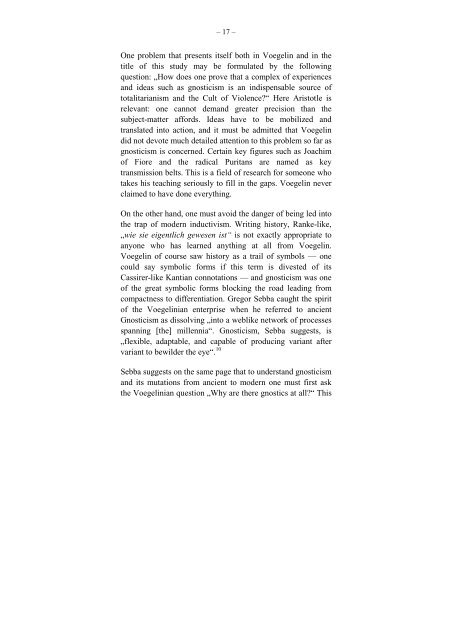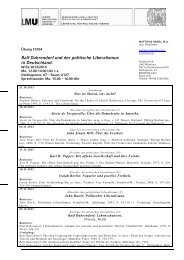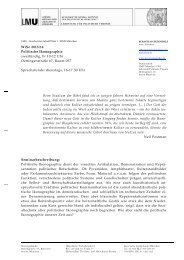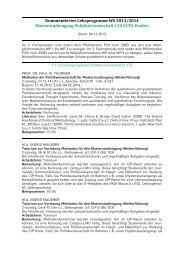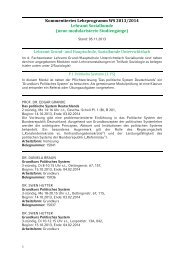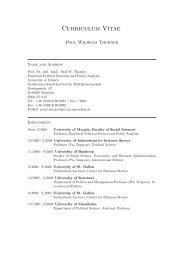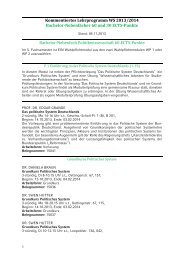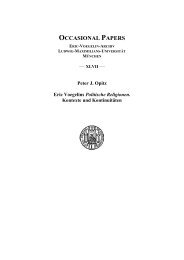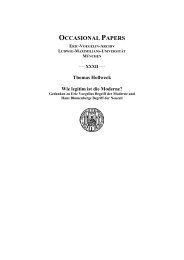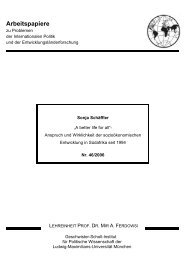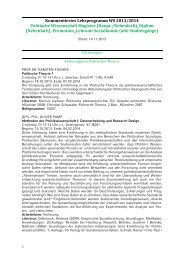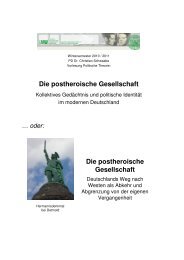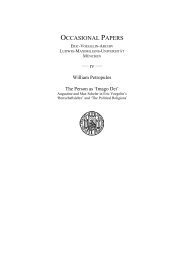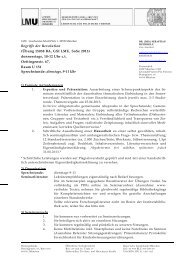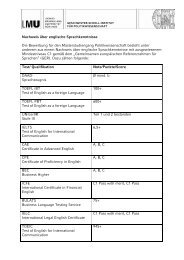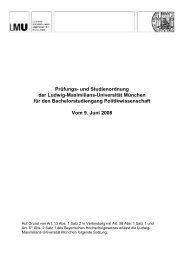Eric Voegelin.pdf - Geschwister-Scholl-Institut für Politikwissenschaft
Eric Voegelin.pdf - Geschwister-Scholl-Institut für Politikwissenschaft
Eric Voegelin.pdf - Geschwister-Scholl-Institut für Politikwissenschaft
Create successful ePaper yourself
Turn your PDF publications into a flip-book with our unique Google optimized e-Paper software.
– 17 –<br />
One problem that presents itself both in <strong>Voegelin</strong> and in the<br />
title of this study may be formulated by the following<br />
question: „How does one prove that a complex of experiences<br />
and ideas such as gnosticism is an indispensable source of<br />
totalitarianism and the Cult of Violence?“ Here Aristotle is<br />
relevant: one cannot demand greater precision than the<br />
subject-matter affords. Ideas have to be mobilized and<br />
translated into action, and it must be admitted that <strong>Voegelin</strong><br />
did not devote much detailed attention to this problem so far as<br />
gnosticism is concerned. Certain key figures such as Joachim<br />
of Fiore and the radical Puritans are named as key<br />
transmission belts. This is a field of research for someone who<br />
takes his teaching seriously to fill in the gaps. <strong>Voegelin</strong> never<br />
claimed to have done everything.<br />
On the other hand, one must avoid the danger of being led into<br />
the trap of modern inductivism. Writing history, Ranke-like,<br />
„wie sie eigentlich gewesen ist“ is not exactly appropriate to<br />
anyone who has learned anything at all from <strong>Voegelin</strong>.<br />
<strong>Voegelin</strong> of course saw history as a trail of symbols — one<br />
could say symbolic forms if this term is divested of its<br />
Cassirer-like Kantian connotations — and gnosticism was one<br />
of the great symbolic forms blocking the road leading from<br />
compactness to differentiation. Gregor Sebba caught the spirit<br />
of the <strong>Voegelin</strong>ian enterprise when he referred to ancient<br />
Gnosticism as dissolving „into a weblike network of processes<br />
spanning [the] millennia“. Gnosticism, Sebba suggests, is<br />
„flexible, adaptable, and capable of producing variant after<br />
variant to bewilder the eye“. 10<br />
Sebba suggests on the same page that to understand gnosticism<br />
and its mutations from ancient to modern one must first ask<br />
the <strong>Voegelin</strong>ian question „Why are there gnostics at all?“ This


